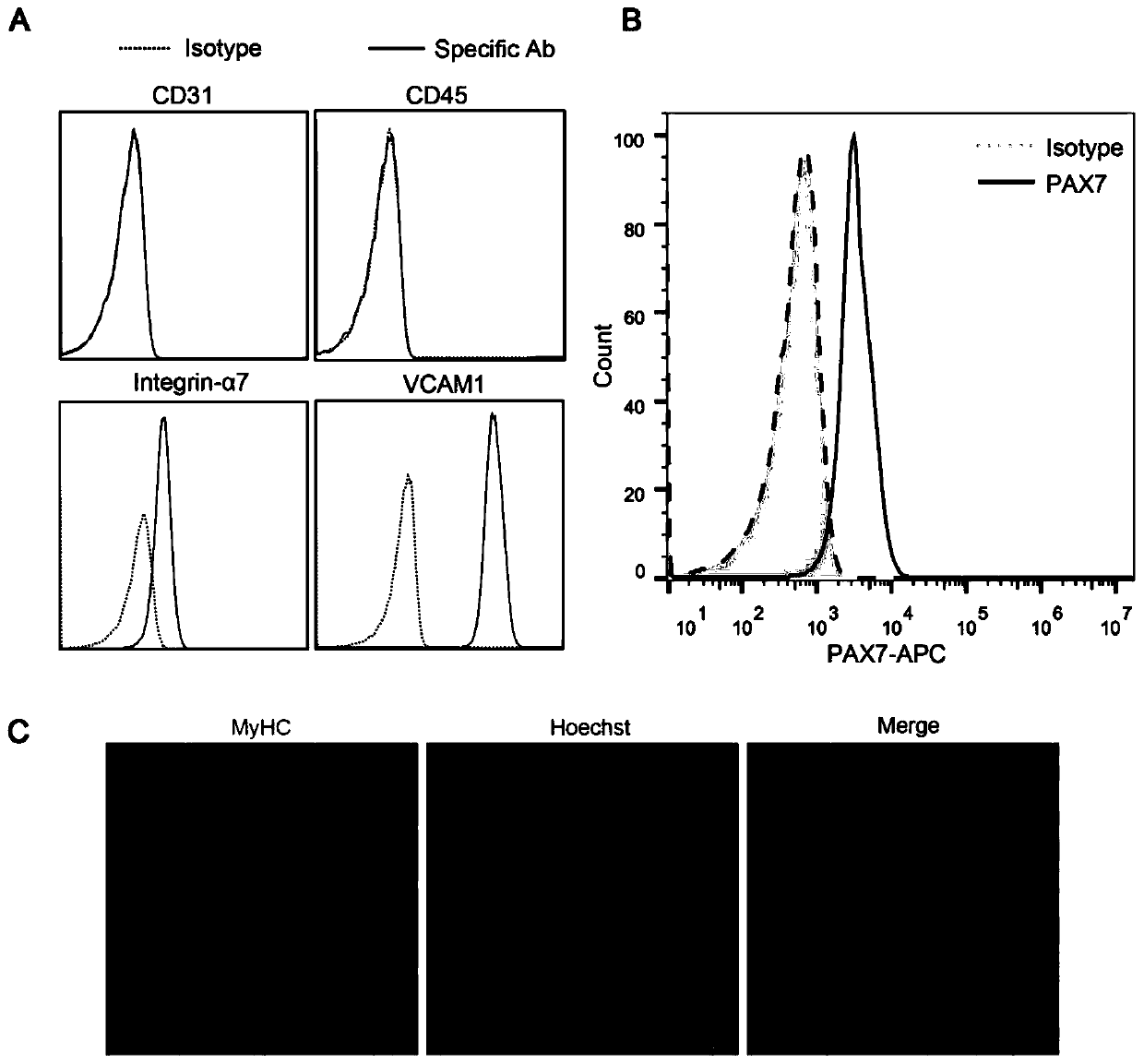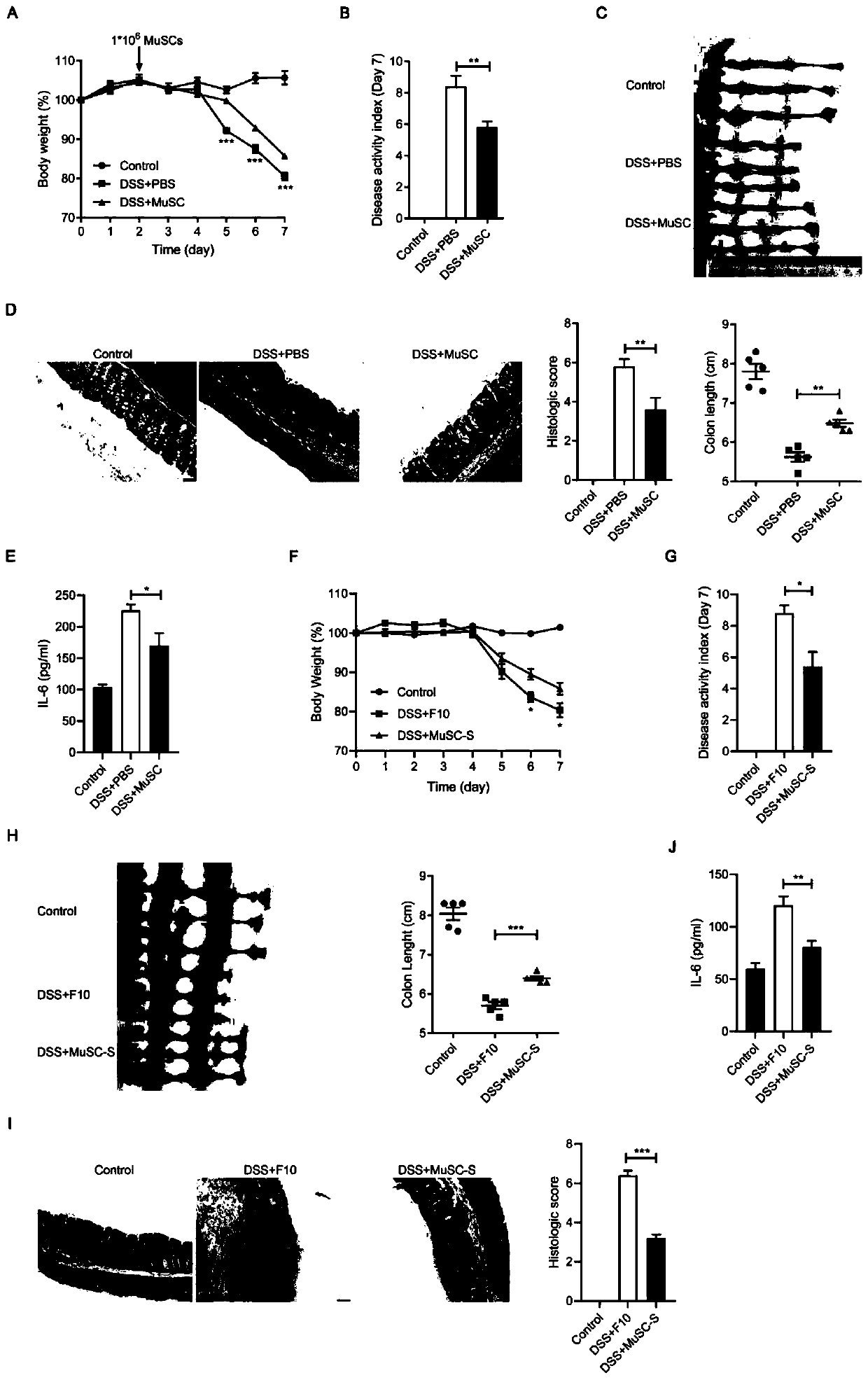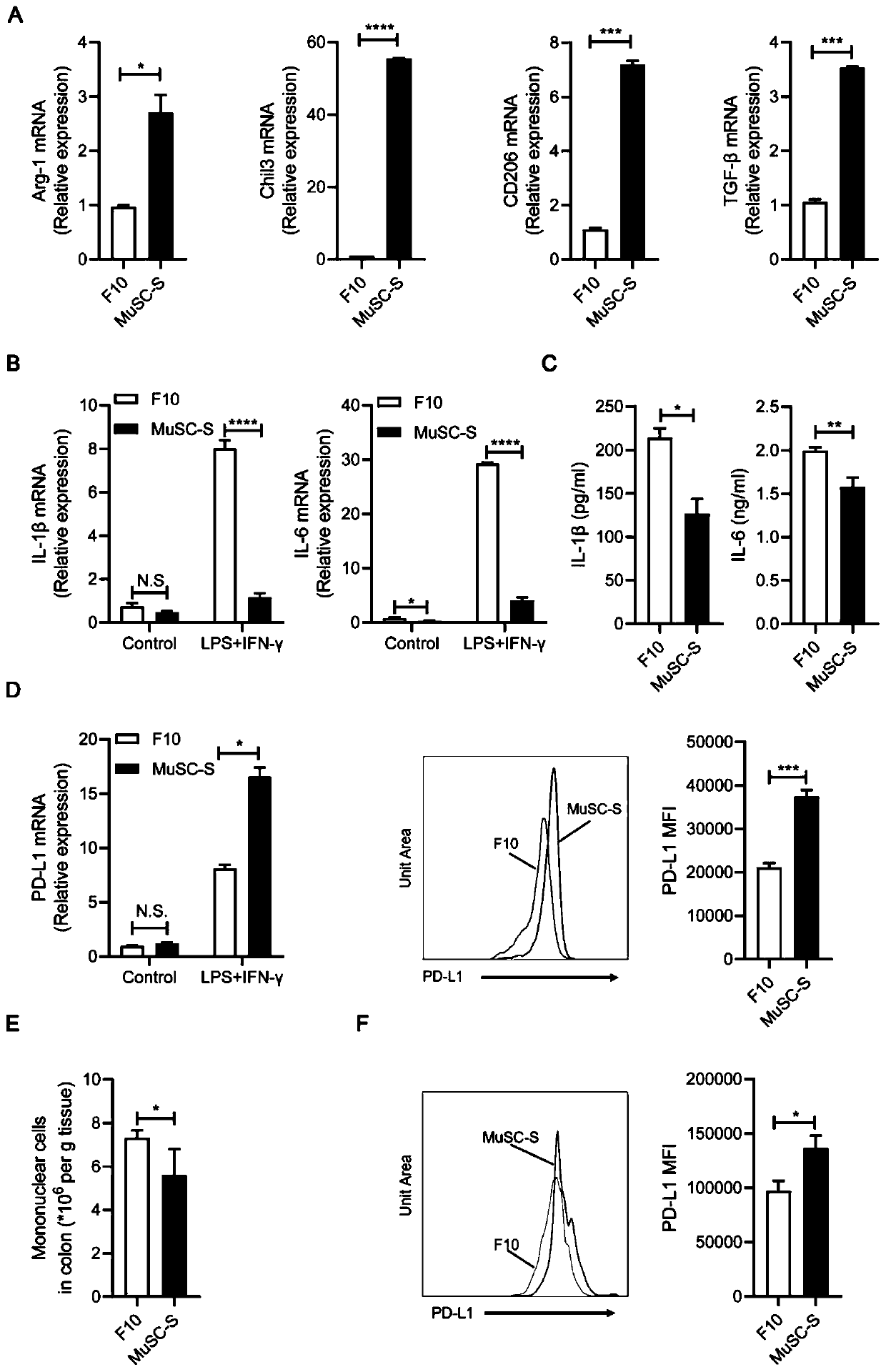Application of muscle stem cells in preparation of anti-inflammatory drugs
An anti-inflammatory drug and stem cell technology, applied in the direction of anti-inflammatory agents, drug combinations, antipyretics, etc., can solve problems that have not been clearly concluded, and achieve the effect of reducing weight loss
- Summary
- Abstract
- Description
- Claims
- Application Information
AI Technical Summary
Problems solved by technology
Method used
Image
Examples
Embodiment 1
[0171] Example 1: MuSC alleviates DSS-induced colitis
[0172] To explore whether MuSCs have anti-inflammatory therapeutic effects, we injected expanded MuSCs intravenously into mice with dextran sodium sulfate (DSS)-induced colitis. The results showed that a single intravenous injection of MuSC significantly improved the disease symptoms of colitis compared with PBS-treated control colitis mice. The weight loss of the mice slowed down, and the disease activity index decreased ( figure 2 A and 2B). In addition, the reduced degree of atrophy of colon tissue in mice also indicated the beneficial therapeutic effect of MuSC ( figure 2 C). At the same time, through histopathological examination, it was found that the intestinal wall thickening, crypt damage, and colonic inflammatory cell infiltration in mice intravenously infused with MuSC were alleviated to varying degrees ( figure 2 D). Serum IL-6 concentration, an important indicator for monitoring the disease process of...
Embodiment 2
[0174] Example 2: MuSC confers anti-inflammatory phenotypic characteristics on macrophages
[0175] As the main pathogenic cell population of colitis, inflammatory macrophages have become potential targets for the development of new therapeutic drugs for colitis. To this end, we used MuSC supernatants to treat macrophages and detect changes in macrophage phenotypic characteristics. The results showed that anti-inflammatory genes (Arg-1, Chil3, CD206 and TGF-β) were significantly increased in macrophages treated with MuSC supernatant ( image 3 A). Even under the stimulation of inflammatory factors (lipopolysaccharide and interferon-γ), macrophages treated with MuSC supernatant did not show high levels of expression of inflammatory pathogenic factors (IL-1β and IL-6) ( image 3 B and 3C). Relevant reports at home and abroad have pointed out that the increased expression of macrophage PD-L1 is crucial for the outcome of disease inflammation and the restoration of immune homeo...
PUM
 Login to View More
Login to View More Abstract
Description
Claims
Application Information
 Login to View More
Login to View More - R&D
- Intellectual Property
- Life Sciences
- Materials
- Tech Scout
- Unparalleled Data Quality
- Higher Quality Content
- 60% Fewer Hallucinations
Browse by: Latest US Patents, China's latest patents, Technical Efficacy Thesaurus, Application Domain, Technology Topic, Popular Technical Reports.
© 2025 PatSnap. All rights reserved.Legal|Privacy policy|Modern Slavery Act Transparency Statement|Sitemap|About US| Contact US: help@patsnap.com



